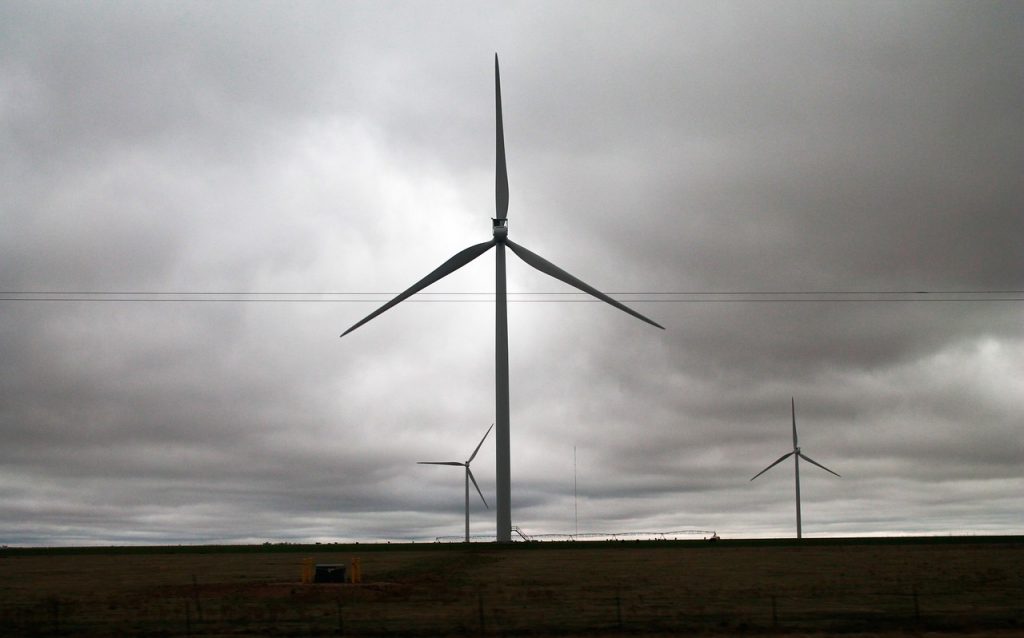By David Blackmon
Grid managers at the Electric Reliability Council of Texas (ERCOT) were forced to move to stage 2 emergency measures Wednesday evening when record-high power demand threatened to overload the system as solar power declined with the setting sun and the state’s fleet of wind generation delivered lower-than-expected inputs. A check of ERCOT’s data at 7:29 CT, a few moments following its stage 2 emergency notice showed that thermal generation consisting of natural gas and coal-fired units was accounting for more than 82% of overall system generation.
The Daily Caller reported that Wednesday’s emergency, combined with forecasts of 100+ degree high temperatures across most of the state Thursday and Friday, led Biden Energy Secretary Jennifer Granholm to issue an emergency order allowing ERCOT to exceed emissions limits to continue to input increased thermal inputs to preserve the integrity of the grid. While Granholm’s declaration is commendable, it is key to point out that the arbitrary emissions limits imposed by DOE on the Texas and other regional grids play a large role in creating the lack of grid stability in the first place.
There is no reason other than such irrational regulations why a state so incredibly rich in energy resources should ever experience capacity shortages on its power grid. The same holds true for every other regional grid across the nation. This is entirely a government-created situation. It’s a truth no one wants to discuss, though, so the conversations invariably go off on tangents that, while relevant, are not the actual cause of the problem.
A report in the Dallas Morning News from Thursday afternoon provides a great example. The headline reads “Texas power emergency hinged on stranded wind farm supplies.” The report details an explanation by former ERCOT interim director Brad Jones that Wednesday’s emergency came about due to a single overloaded transmission line designed to transport electricity generated by South Texas wind farms to the Dallas/Fort Worth area in North Texas.
“The grid was facing the potential of congestion overload on the line coming from South Texas toward Dallas,” Jones said during an interview. “All the wind that was on in the south was struggling to get to Dallas to help meet demand. So right in the middle of this, ERCOT had to reduce generation in the south to prevent that line from being overloaded.”
Well, ok, that makes sense, as far as it goes. But nowhere in its report does the Morning News question why Texas must transmit power generated by wind farms sited hundreds of miles away to the DFW area, enduring a high percentage of line loss, when that market sits smack dab in the middle of the Barnett Shale, one of America’s biggest natural gas reserves. Wouldn’t it make more sense just to use that prodigious natural resource to generate electricity from power plants sited right in the region?
We should also ask why Texas has allowed those wind farms to be constructed right in the middle of the migratory pathways for hundreds of species of birds, creating an annual slaughter of untold thousands of them. Did the state have any real need for the power these wind farms generate outside of arbitrary targets set by state and federal governments? The answer to that question is clearly and unambiguously “no.”
The Texas grid is in no way unique here. The simple fact of the matter is that every problem related to stability and reliability of every power grid in this country has its germinating cause based in government targets, mandates, subsidies, and other policies. All these policies distort markets, create perverse incentives, and ignore what should be the main goal of any power grid, which is to protect and preserve the safety of the people in the service area.
But these are questions few in the media want to ask, because they don’t fit the prevailing narrative. And they are questions no one in government wants to answer, since honest answers to them invariably trace the causation back to their own policies and actions.
The inevitable outcome is a never-ending crisis that no one ever effectively addresses. None of this will get any better until this dynamic changes.
David Blackmon is an energy writer and consultant based in Texas. He spent 40 years in the oil and gas business, where he specialized in public policy and communications.
